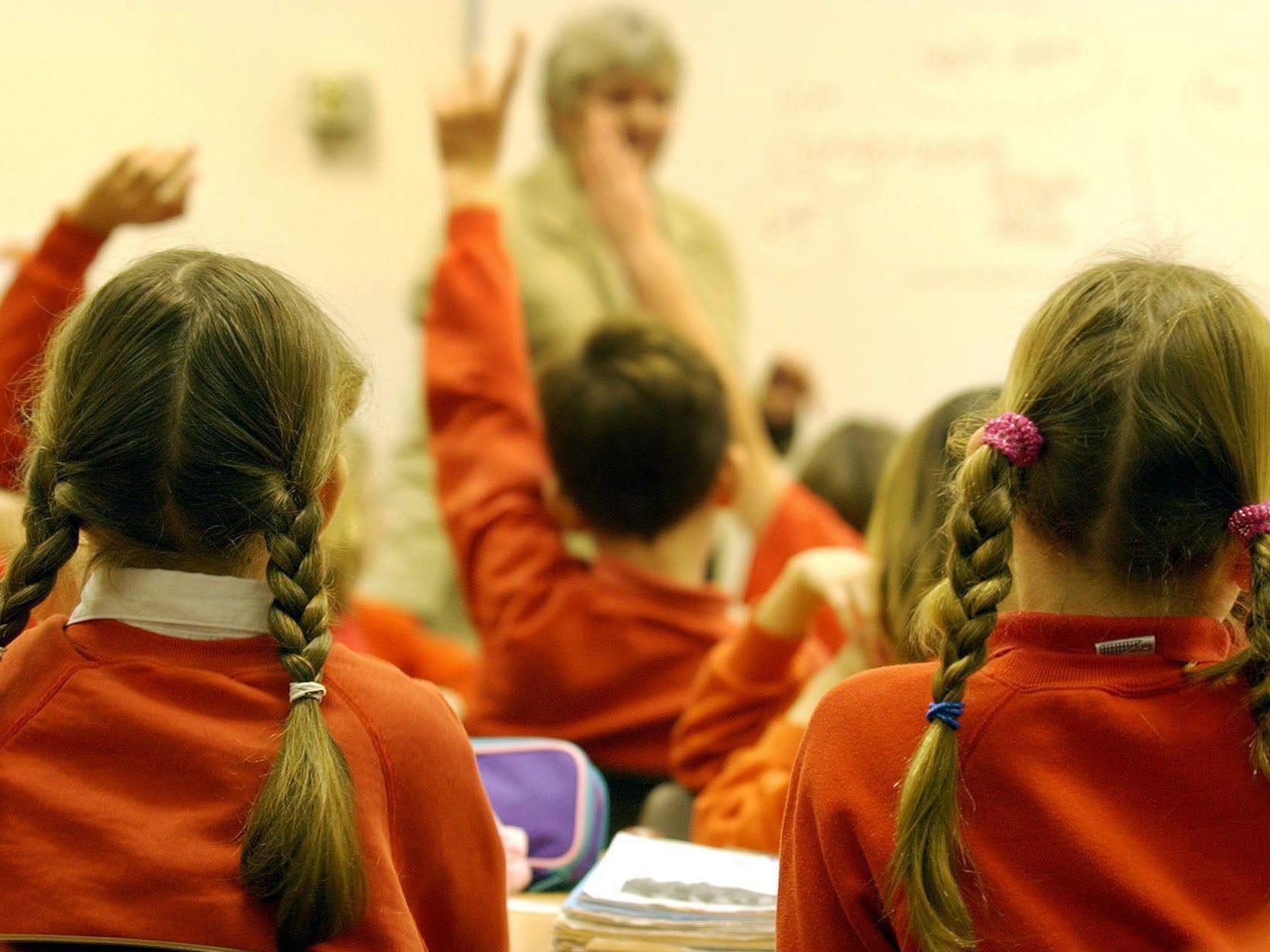Two-thirds of parents think school children should be taught signs of cancer, poll finds
'We want the next generation of children to be armed with knowledge that can help save lives'

Your support helps us to tell the story
From reproductive rights to climate change to Big Tech, The Independent is on the ground when the story is developing. Whether it's investigating the financials of Elon Musk's pro-Trump PAC or producing our latest documentary, 'The A Word', which shines a light on the American women fighting for reproductive rights, we know how important it is to parse out the facts from the messaging.
At such a critical moment in US history, we need reporters on the ground. Your donation allows us to keep sending journalists to speak to both sides of the story.
The Independent is trusted by Americans across the entire political spectrum. And unlike many other quality news outlets, we choose not to lock Americans out of our reporting and analysis with paywalls. We believe quality journalism should be available to everyone, paid for by those who can afford it.
Your support makes all the difference.Children should be taught about the signs and symptoms of cancer, a poll of parents has found.
The study, which polled 1,000 parents of children in secondary school, suggested that they would like children to learn about it from the age of 11.
Nearly a third of UK respondents felt uncomfortable talking about cancer with their children themselves and 61 per cent felt cancer should be taught in a Personal, Social, Health and Economic Education (PHSE) lesson.
In total, 83 per cent of those polled felt it was important for their children to learn about illnesses and diseases which may affect them in the future.
More than 70 per cent felt children should be encouraged to talk about possible signs and symptoms of cancer, with the majority saying it would help to break down any associated stigmas.
“We want the next generation of children to be armed with knowledge that can help save lives," said Athena Lamnisos, chief executive of the Eve Appeal, a national charity dedicated to raising awareness of the five gynaecological cancers, which commissioned the research. “A child’s relationship with their body is the longest one they will have – and we want schools to teach them how to respect and understand it."
She added: “We know early diagnosis is imperative to a better outcome for patients – especially with gynaecological cancers - and preventing cancer is what we, and parents, all want to see. Our priority now is to leverage the government’s current focus on this area of education and to ensure that life-saving knowledge that will bolster health prevention is built in.
“We’re recommending that basic body knowledge is included from age seven and that cancer screening, prevention and signs and symptoms education begins at age 10. It’s essential that these issues are taught in both age appropriate and taboo-busting ways. We must increase knowledge and reduce embarrassment.”
The Eve Appeal has launched its Put Cancer on the Curriculum campaign, calling for the government’s new draft guidance on relationships and health education to include education on cancer, along with enhanced anatomical body knowledge.
It responds to the current Government consultation on Relationships, Sex and Health Education launched in July and continuing until 7 November.
Dr Bella Smith, an NHS GP, said: “If we can talk to children openly, honestly and without embarrassment they can learn what is normal in their development and in their health. This teaches them to take responsibility for their own health and to be in control of their bodies. We don’t need to scare them.
''In fact, the more aware of their health they are, and the more that they are comfortable discussing their health, the more likely they will be able to detect an abnormality early. This is so critical for parts of the body that might be seen as ‘embarrassing’ to talk about.”
Deborah James is a mother of two and former deputy head teacher who was diagnosed with stage 3 bowel cancer at the age of 35, which has now advanced to stage 4.
Backing the campaign, Ms James said: “I feel strongly that schools already carry a huge burden of responsibility in picking up the threads of health and relationship education where parents seem either unwilling or unable to do so. Yet as a mum and somebody living with cancer, I also feel it’s imperative kids are educated in respect of their bodies, hard as those conversations may be.
“I had no idea the symptoms I was experiencing prior to my diagnosis were classic symptoms of bowel cancer. Perhaps if a cancer education programme was fully immersed into the curriculum when I was at school, things may have turned out very differently for me. This campaign is critical because it tackles a lot of taboos at once: certain parts of the body for example. I feel we need to do everything to break the culture of embarrassment around gynaecological health.”
SWNS
Subscribe to Independent Premium to bookmark this article
Want to bookmark your favourite articles and stories to read or reference later? Start your Independent Premium subscription today.
Join our commenting forum
Join thought-provoking conversations, follow other Independent readers and see their replies
Comments